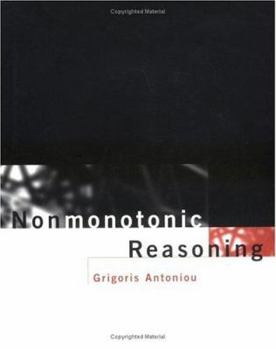Nonmonotonic Reasoning
Nonmonotonic reasoning provides formal methods that enable intelligent systems to operate adequately when faced with incomplete or changing information. In particular, it provides rigorous mechanisms for taking back conclusions that, in the presence of new information, turn out to be wrong and for deriving new, alternative conclusions instead. Nonmonotonic reasoning methods provide rigor similar to that of classical reasoning; they form a base for...
Format:Hardcover
Language:English
ISBN:0262011573
ISBN13:9780262011570
Release Date:April 1997
Publisher:MIT Press
Length:275 Pages
Weight:1.65 lbs.
Dimensions:0.9" x 7.3" x 9.3"
Age Range:18 years and up
Grade Range:Postsecondary and higher
Customer Reviews
0 rating





